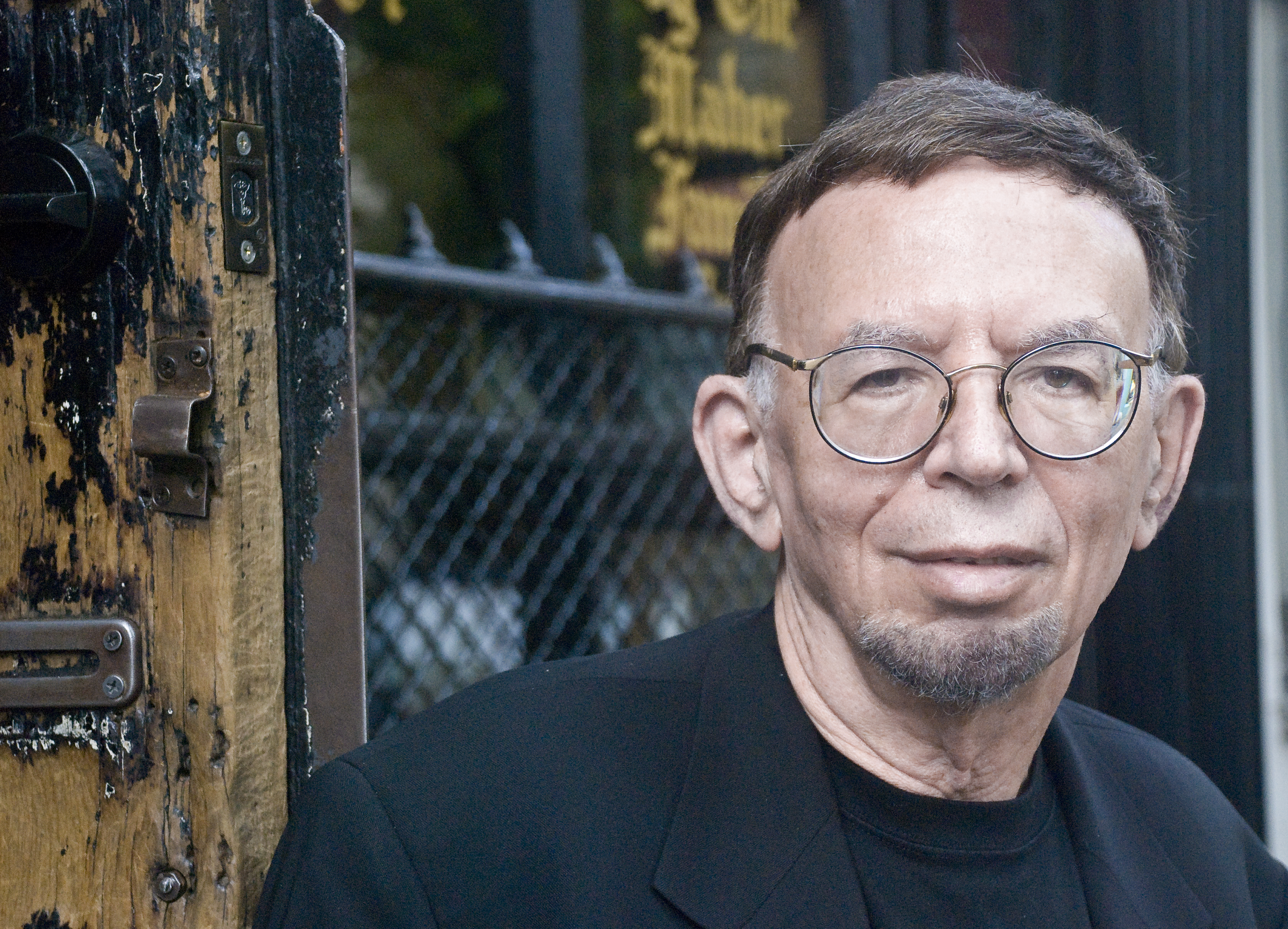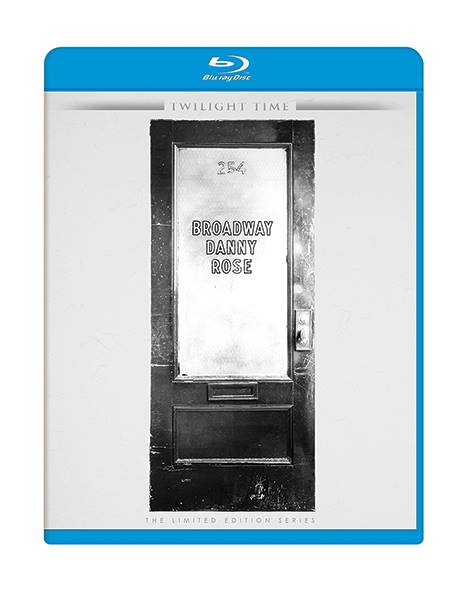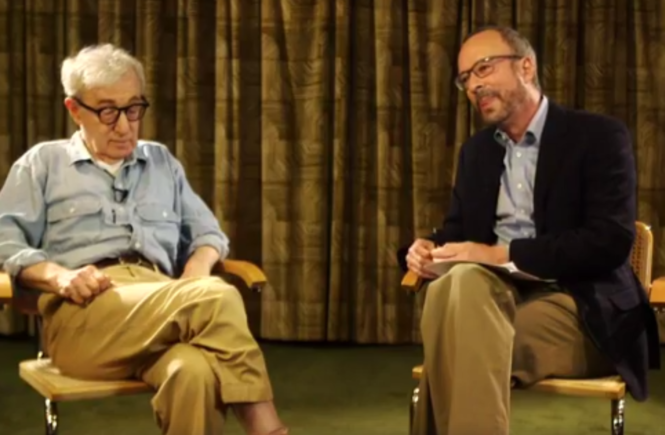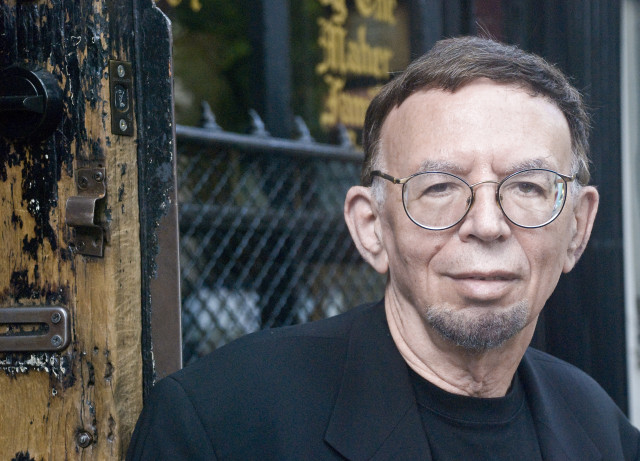
There’s always a problem with writing books about Woody Allen – he’s bound to make your work out of date. Now we have ‘Woody: The Biography‘, a new profile on Allen that brings us up to date. In fact, there probably has not been a career long overview since Eric Lax‘s ‘Conversations With Woody Allen‘ (in 2009) and no real look at the full breadth of Allen’s life since Lax’s own biography in 1991 (named ‘Woody Allen: A Biography‘, updated in 2000).
The new book comes from David Evanier, who has written biographies on Bobby Darin, Tony Bennet and more. An Allen fan since the 1970s, he managed to track down and gain unprecedented access to people in Allen’s life. It covers the span of Allen’s life, and uncovers many stories not told before. The book coincides with Allen’s 80th birthday next month.
We asked Evanier a few questions – about his book, about his encounters with Allen, and what he discovered in his research. As usual, we asked him to pick a few favourites as well.
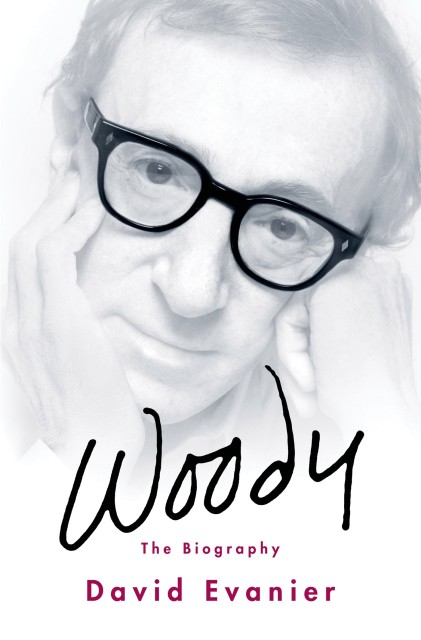
When did you first discover Woody Allen?
In 1972 I was living in the student house of a church on Washington Square and a fellow said to me, “You look like Woody Allen.” I was startled; I had never seen him and didn’t know how to take his remark.
I discovered Woody when I saw “Manhattan” in 1979. I was an editor at “The Paris Review,” writing stories that would turn into my first novel, “The One-Star Jew” in 1983. I was thirty, and had recently returned to Manhattan myself from university in Vancouver. I had missed New York terribly so it expressed my love for the city.The scene where Woody and Diane [Keaton] sit on the bench by the 59th Street Bridge at Sutton Place, startled me; I had taken my first girl friend to that spot years before. I didn’t recall a bench being there, and recently discovered there actually wasn’t one. Woody had brought a bench to film the scene.
How did you become a Woody Allen fan?
I became a real fan in 1984 when I saw “Broadway Danny Rose.” There was such a love of old Broadway, the vaudeville troopers, that I had myself, so much deep feeling and affection (but not sentimentality) in it, that blend of comedy and drama that Woody has become so adept at combining. And it is a celebration of moral decency and loyalty (especially to Jack Rollins, Broadway Danny Rose himself)–qualities I would later discover were aspects of Woody’s character.
Actually, a couple of years before seeing the film, I had stopped at a Holiday Inn for lunch in Springfield, Mass. and seen this huge poster advertising a lounge act. It was the smiling face of Nick Apollo Forte, gold chains over his big stomach, who would soon be Lou Canova in the movie. He was one of Woody’s many discoveries of real characters who could act in roles that seemed to be their genuine selves. There was also the amazing transformation of Mia Farrow into the tough ex-Mafia wife, and, of course, the final scene when Danny runs after Tina in the rain and they kiss in front of the Carnegie Hall Deli, and I wept.
I used Danny’s words of his Uncle Sidney: “Acceptance, forgiveness, love” as the epigraph in my later book of stories, “The Great Kisser.” I gave that book to Woody when I met him this year to interview him for my biography. So I was hooked from then on. I went back to hear and watch his incredible standup comic routines, “Annie Hall,” “Take the Money and Run” and everything else. But my greatest love for Woody’s films intensified with the profound later films like “Crimes and Misdemeanors,” “Alice,” “Zelig,” “Husbands and Wives,” “Bullets and Broadway” and many other films that came later.
Why now for ‘Woody: The Biography’?
Woody’s impending 80th birthday was one factor. I had come to a gradual realization of what he had accomplished: 46 films in 46 years, at least 25 of them truly excellent with, as a critic I quote (Jim Hoberman) wrote, “startling intimations of greatness.” And many of them actually were great. There was endless productivity, an inexhaustible inventiveness and thematic ingenuity. No one has covered the gamut as Allen has, from downright laugh-aloud funny to poignantly, startlingly moving. . “Zelig” might have been one filmmakers’ single culminating masterpiece. But that was the year Woody did two films at once: the other was “A Midsummer Night’s Sex Comedy.” And he gave everything he had to every film, even the lousy ones.
I need to stress that these were gradual realizations for me. We tend to take for granted someone like Woody, who is always with us and always producing new work, some of it wonderful, some of it flawed. It was time to stand back and gain a perspective of just how much he had accomplished. It is mind-boggling. I also felt that it was time for another biography and there had been none since 2000. The last biography actually predicted his literal demise; that he was aging and creatively burnt out. Since then there have been so many great films and of course the breakup with Mia Farrow and the alleged sex scandal.
I went into the book with no preconception of where I would come out on those issues. What makes my book different: The portrait of Woody’s childhood by his three best boyfriend friends; the account of his relationship with his parents; [Allen’s first wife] Harlene [Rosen]’s speaking out after so many years’; an objective assessment of his work, good and bad; an entire chapter of reminiscences by his best friend, Dick Cavett; his true birthdate; important new interviews regarding the sex allegations; my correspondence with him; my meeting with him; the depth of his rage about the Holocaust and the ways in which he injects those feelings into many of his films; facts about his working relationship with Dr. Martin Bergmann from my meeting with his widow, Dr. Maria Bergmann and their son, Michael Bergmann; the reasons why he is probably the most amazing phenomenon in the history of American show business; an understanding of the ways in which intellect and tenderness are as important to him in his sexual relationships as passion.
How would you compare Allen to your other book subjects like Bobby Darin or Tony Bennet?
In “Manhattan” Isaac lists the great inspirational cultural figures in his life: among them Groucho Marx, Chaplin and Frank Sinatra. To that list we now unquestionably add Woody Allen. Qualities that certainly link some of the people I have written about include great inner strength, toughness, a tenacious work ethic. Unearthly persistence and a love of the art form they practice. They live for their work; they come most alive when practicing it.
Woody compares writing to flying; he has said “Writing is culmination; it is being wholly alive.” John Lahr said of Chaplin and Woody Allen: “Both are comic geniuses who give life without actually loving it.” Harry Block in “Deconstructing Harry” admits that “Writing saved his life.” But unlike some of the other people I have written about, Woody has not grappled with the demons of drug abuse, alcohol, megalomania or crippling self-doubt. He always knew he could write. And there has been a moral integrity to his life that has been totally consistent. He didn’t step over others to get to where he was going.
He told me of how Jack Rollins never took a commission from him at all in the early struggling years. I understood that was why he paid Jack and credited him on his films to the very end of Jack’s life this year. As he has said, he would never have gotten to where he was without Jack. And he would continue to visit Jack along with his other pals Dick Cavett and Billy Crystal and that a wonderful source of joy for Jack in the twilight years.
You interviewed a lot of people for your book – including Allen. How did you find people to talk to?
The first thing I did to get to Woody was to ring his doorbell and leave a letter for him. He answered me the next day. While always stressing to me that this would not be an authorized biography, he has been unfailingly cordial and helpful. I spoke to some sixty people; one person led to another. I hunted down Woody’s first wife, Harlene Rosen Allen for over a year before I found her and she sent me a beautiful birthday message for Woody’s 80th birthday which is contained in my book. (Find the message here).
Most people were very happy to speak about Allen: Jack Rollins, who was 100 and failing in health, became radiant in speaking about Woody’s humanity and unique talent. Lynn Cohen, who appeared in “Manhattan Murder Mystery” during the crisis with Mia, spoke of Woody’s unfailing self-discipline and kindness; that he was, as she put it, “a gentle” (pause) “man.” Struggling writers spoke to me at length about Woody’s support and encouragement at times in their lives when they were facing crises. And Woody’s boyhood friends told me so many stories of the joys and sorrows and pranks they’d experienced with Woody and that he was as funny as a kid as he has been ever since.
What did you learn about Allen, over the course of writing the book?
Enormous inner strength and self-belief, completely at odds with his image on screen. It didn’t seem to make sense in someone who acted like the ultimate schlemiel, fearful of bugs, germs and elevators, who appears to be afraid of his own shadow. But that’s Woody Allen. He was uncertain in his personal life, but he was very tough.
Things I learned: he wanted and got total artistic control from the start. That money was never the issue with him – integrity was the issue. I write in my book of his willingness to fail, that no one has ranged in his work so continuously from the sublime to the wretched. I learned of his genuine indifference to reviews and awards. I learned about the joyous, secret side of him that is expressed in his playing New Orleans Jazz, a feeling he’s described as “bathing in honey.” That joyousness comes through in so many of his films. I learned of his happiness with his wife of 19 years, Soon-Yi [Previn], and their children.
I learned more about his psychological makeup from delving into his parents’ uncomprehending attitudes toward him and especially his mother’s hyper-emotion, which made him control his emotions and concentrate on his work. Woody had parents who loved him but who didn’t have the slightest idea of what he was doing. Up to nearly the end of their lives they were pleading with him to give up the insecure world of show business and become a pharmacist. And he was unfailingly good to them for the entirety of their lives. And regarding the charges of sex abuse, I learned from a careful examination of the case his unquestionable innocence, that the charges were preposterous acts of vengeance. These conclusions came about after an exhaustive study and interviewing the former New York sex crimes prosecutor, Linda Fairstein, and the Pulitzer Prize winning writer, Dorothy Rabinowitz, who authored the seminal book on induced sexual memory.
OK, between the big 2: Annie Hall or Manhattan?
I would choose “Manhattan” because it is a deeper portrait of Allen, clearer in its themes and intentions and because it presents for the first time in his work a portrait of a woman (Tracy) that is fully sympathetic and loving. I think the final scene in which Tracy is leaving for London is the most indelible scene Allen had written up to that point in his career and is one of the great scenes in any American film for all time.
And finally – if you had to choose one Allen film, what would it be.
I would have to choose two: “Broadway Danny Rose,” for the reasons I have stated before, and “Crimes and Misdemeanors,” which Allen has not yet acknowledged is the masterpiece he believes he has not yet written.
In this film Allen combines the dramatic and the comical in the most ingenious ways. Its debt to Dostoyevsky is clear in its title; it poses Dostoyevskian themes in the most modern context. Post-Holocaust, Allen writes of a world denuded of moral structure and religious belief, a world in which murderous acts are committed without punishment or lasting regret. His film is a crying out against the “way we are now” while still holding out the hope, in the figure of Dr. Levi (played by a psychoanalyst of Holocaust survivors, Dr. Martin Bergmann) that human beings still are trying to figure out ways of leading moral and humane lives. Allen told me that the figure of Dr. Levi was a composite of Primo Levi, the writer of the Holocaust, and Dr. Bergmann. The concluding words of Dr. Levi are words of hope against hope, reminiscent of the great concluding words of Thomas Mann‘s masterpiece, “The Magic Mountain.”
He does look a bit like Allen, doesn’t he?
David Evanier’s book, Woody: The Biography right now from Amazon. You can find out more about Evanier at his official website.

